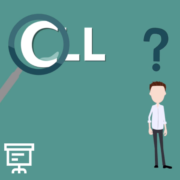The Truth about CLL Treatment Options from Patient Empowerment Network on Vimeo.
When it comes to CLL treatment information, how can you separate fact from fiction? CLL expert Dr. Javier Pinilla-Ibarz tackles common questions. Want more information? Download the Program Resource Guide here.
Dr. Javier Pinilla-Ibarz is the Lymphoma Section Head and Director of Immunotherapy in the malignant hematology department at Moffitt Cancer Center. More about this expert here.
See More From The Fact or Fiction? CLL Series
Related Resources
Transcript:
Patricia Murphy:
Let’s play a little fact or fiction game. I’ll tell you some of the things we have heard from patients with CLL, and you can tell me if it’s fact or fiction.
Dr. Javier Pinilla-Ibarz:
Sure, absolutely.
Patricia Murphy:
Here we go. First one. And I think we’ve already solved this, but I’ll just say it’s a concern of patients. “You have to treat CLL right away.”
Dr. Javier Pinilla-Ibarz:
That’s not true, as I mentioned before, and I tell you, most of the patients will really come really scared into our work clinics and with a very high anxiety levels do not require therapy. So, I think it’s important. So, it’s very specific research. So, most of the people are – many people think that because their white blood counts continue to raise, this is the criteria for therapy, while it’s a very specific reasons of doubling time, but really, really relatively rare.
So, it’s relatively rare to be – need therapy for count or high count. And most of the people has high blood counts, they don’t feel it. Besides that, I think the emphasis is that if the patient needs therapy, well then, they need therapy. But they already anticipate that.
Patricia Murphy:
Yeah. Okay, here’s another one. “Watch and wait can go on for years, and I may never need treatment.”
Dr. Javier Pinilla-Ibarz:
You’re right. So, there is a special population of patients, mainly with certain characteristics such as, for example, 13q by FISH, 13q deletion by FISH, and IGHV mutation in heavy chain immunoglobulin, those groups of patients that is the classical ones that not all of them, but some group of them, may never require therapy, and there is patients in my practice that have been followed for years and years, 10, 15, or even 20.
Patricia Murphy:
Man, that’s very interesting. How about this one? “Chemotherapy is the only available approach. One size fits all when it comes to treatment options.”
Dr. Javier Pinilla-Ibarz:
Well, as I mentioned before, at length it’s not really chemotherapy. I wouldn’t say that chemotherapy is not an option these days, but however, with introduction of the new therapies, I think it’s moving away. It’s moving away to the therapy for CLL patients. And I think – I have to admit that we really, with the incorporation of these time limited therapies that I discussed before, chemoimmunotherapy is using less and less.
In the community, maybe because the incorporation of the new drugs it takes longer, it still may be used, and they may be used, but definitely in academic institution, I can tell you for sure, chemoimmunotherapy is almost gone.
Patricia Murphy:
That’s a great point about community care. That’s a great point. So, as a patient, I may be able to look into more therapies if I ask my doctor, perhaps?
Dr. Javier Pinilla-Ibarz:
Oh, absolutely. Absolutely. I think many doctors in the community and academic institution, they know that, but obviously, I think patient with CLL need to understand that there’s multiple options today, right? And another thing that you said, that chemoimmunotherapy is the only option, it is not really the right answer for our patients, right? There is no doubt it is an option, but there’s many others that need to be discussed with our patients to see how we gonna fit those different therapies for a specific patient as was mentioned, try to customize it, try to really adopt the different goals and really, really, outcomes for each individual patient.
Patricia Murphy:
Yeah, I think we tackled this one a bit, but it’s probably worth mentioning again. How about this one? “I have to take inhibitor therapies forever.”
Dr. Javier Pinilla-Ibarz:
Forever. That’s right. BTK inhibitor, I mentioned before, and mostly – all the BTK inhibitors, even the PI3K gamma inhibitors that they are proving second line now, they are being described – or they are being studied that they are taking anti-disease progression, or an acceptable toxicity, right? So, that’s the reason. So, maybe we’d say, “Well, on remission. Can I stop therapy?” Well, we do not recommend that because the data that we have from the clinical trials, patients continue therapy. And we note, as far as patient continue therapy, patient gonna do well.
So, the question is, what happens if you stop therapy? Well, we know that some patients may really have a relapse very, very fast, we call flare, classically happening in the lymph nodes – tumor flare – while other patients may really take longer to really have relapse.
So, we cannot – it’s very, very hard to really advise, and it’s something I do not advise, to stop therapy because we don’t know how the patient’s gonna really behave. However, there’s no doubt in certain situation when patient may have toxicity, chronic toxicity, patient may discontinue the drug. Some of these patients, they have been switched to another strategy, or some of them decide to say, “Okay, doctor, leave me alone. I wanna recover, and then after that, we’ll see if I really want to get in something else or I want to wait until my disease come back.” So, some take different strategies.
Patricia Murphy:
All right, one more. “It doesn’t matter if I miss one dose of oral therapy.”
Dr. Javier Pinilla-Ibarz:
Well, there is no doubt that the compliance is always a big issue on chronic therapies, oral therapies, and we really emphasize the importance to really, you know, give these drugs in a daily basis as being prescribed.
No doubt that there’s two issues here, the financial toxicity, the fact that some patients may really have a very high copayment, so they may want to skip doses to save money. That’s really, really unfortunate, but happen, right? The second one, obviously, is people who may really have significant side effects of the drug and may not want to retake the drug.
So, I think these things that need to be discussed with the providers, with doctors, to see how better we can really manage these situations. Let’s say an intolerance, maybe adjusting the dose, dose reduction. In financial toxicity, it’s a challenge, right? We try to help our patients, multiple foundations, Leukemia Lymphoma, many others, but I have to really say, sometimes this may not happen. So, it’s one of the big frustrations in some patients and doctors when we encounter this situation.
Patricia Murphy:
It really stresses the importance of a doctor-patient relationship.
Dr. Javier Pinilla-Ibarz:
Absolutely, absolutely. But once again, I think we always discuss about compliance. I think compliance is very, very important for the success of any therapy, so we definitely support the fact that patients should really take the drug as prescribed.
Patricia Murphy:
Totally. What else do you hear from patients? Anything that you hear that you feel like you have to bust some myths about when you’re talking with your patients?
Dr. Javier Pinilla-Ibarz:
Well, as you can imagine, in the – doing the phase of active surveillance, and because patient is really quite scared, they looking for any alternative medications or even therapies that they are out there that they think are gonna save their lives, right?
And although I quite liberal with things, we always pay attention to some of these things that are likely to really have any effect and sometimes may be deleterious for the health of patients, so I always really make them aware that there’s very, very few things that are being tested, and there’s not much evidence that any of the alternative medicines that we have really out there can have any influence.
Everyone referred to the green tea extracts as something that is being described in the literature with curcumin, so these the couple of things that we may really give to our patient as a way to feel that they are doing something because I think it’s the frustration of the patient that they have to wait. They are in surveillance, but they are not doing nothing.
However, my best advice to my patient is to really try to really get in a very good and healthy lifestyle, right? To really prove, you know, nutrition in the ways that everyone knows but very few people does, exercise as possible, and try to really keep themselves as healthy as possible because we know that there’s other things that can happen, for example, infection is another thing that may also really, really complicate the active surveillance strategies that we really recommend.
Patricia Murphy:
Right, right. What about clinical trials? Do you hear misconceptions from your patients around enrolling in clinical trials?
Dr. Javier Pinilla-Ibarz:
For sure. For sure. It’s very, very classical. People always – many patients, unfortunately, they think a clinical trial is an experimental drug that has never been proven in patients. And although it could be true, most of the time, they are a drug who has a very, very important background. They have an important, you know, scientific evidence why we try them. It’s true on phase one trials, they really are tested for toxicity. Phase two trials, it’s for somewhat efficacy. However, I think we need to discuss specific basis what kind of trial.
Another important misconception is most of the people think they really gonna get placebo. The famous placebo versus drug issue. It’s very rare to see placebo trials in oncology, right? Most of the patients, what they’ve been randomized, another kind of bad word for patients. “Oh, I been – I gonna be randomized in the placebo.”
Well, No. 1, placebo arm is very rare, and the randomization is standard of care versus something that we believe gonna improve the standard of care. Let’s say ibrutinib in comparison with ibrutinib plus something else, okay? Something else, okay?












